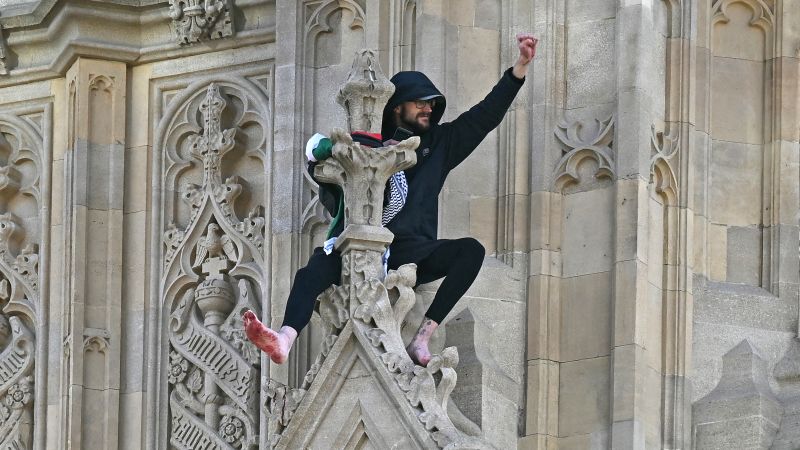ATLANTA – Defending FedEx Cup champion Viktor Hovland arrived at East Lake Golf Club on Tuesday, the same course he torched in 9-under 61 to win the Tour Championship a year ago, and expressed shock at the restoration project that was completed in less than one year.
“It looked completely different than it used to,” Hovland said. “It’s almost like you can’t imagine it.”
Xander Schauffele has never shot over par in 28 Tour Championship rounds, including the low 72-hole score at East Lake three times, but he has never won the FedEx Cup. East Lake has become a personal ATM, which is why when he was asked if there was a part of him that wanted to throw himself in front of a bulldozer and stop the construction, he smiled and said, “100 percent. My caddie as well. He probably would have gone first.”
He added: “To me, it’s got the same name; it’s East Lake Golf Club. It’s in the same property, similar square footage. But that’s about it. I think the only thing that’s the same are the directions of the hole.”
Hours after Hovland’s final putt dropped last August to secure the title, Andrew Green, who led renovations at Oak Hill, Inverness and Congressional, spearheaded the course restoration at East Lake, the oldest golf course in the city of Atlanta and where legendary golfers Bobby Jones and Alex Stirling learned the game.
Tom Bendelow laid out the original course at East Lake, back when it was known as Atlanta Athletic Club. Donald Ross built a new course on the same spot in 1915, which remained untouched until changes were made by George Cobb before the club hosted the 1963 Ryder Cup. Thirty years later, Rees Jones completed a renovation in advance of the course becoming the permanent home of the Tour Championship, the culminating event of the playoffs for the FedEx Cup, since 2005.
Green discovered a previously unknown aerial photograph of East Lake in digital archives from 1949 as his restoration inspiration. This photograph showed the original Donald Ross design in surprising detail and provided guidance on green shapes, bunker shapes and overall topography of the original design.
“We paired that with a set of photos we had right before George Cobb did his work, before the Ryder Cup, and now we’ve painted a complete picture of how things sat on the ground,” Green said. “At the heart of everything we’re doing, it’s finding ways to respect that past and legacy.”
Green – who also worked on Wannamoisett, a beloved Ross design in Rhode Island – took the East Lake team on a trip to the club in the summer of 2023 to look at its greens. They dropped a cell phone down as a hole location and rolled balls on every green, the beginning of a collaborative effort in which Green was given the final say.
“Decisions were made in the field with tape measures,” said Chad Parker, general manager and CEO at East Lake Golf Club. “If the ball lands here, it’s going to do this and the player is going to get rewarded and if it doesn’t it may go in the rough.”
The greens are more undulating with the size, shape, contouring and surrounding runoff areas of each green complex enhanced to create a distinct style and variability to the course. The putting surface at the uphill par-3 second, for instance, is over 9,000 square feet, nearly 3,000 square feet larger than previously with a sinister back-left pin placement perched over a swale.
Fairways have been converted to Meyer Zoysia, which plays firmer and will lead to increased roll, allowing the topography to play a greater role in the strategy of each hole. All greens have been converted to TifEagle Bermuda, which is expected to provide putting surfaces that have improved speed, consistency and overall playability. Many of the bunker shapes were inspired by the original Donald Ross design from 1913, with the most notable being the trench bunker on No. 17.
Water was also a particular focus of the restoration. Green’s team reclaimed a stream between the sixth and seventh holes, and the 14th hole, which included tee expansion, fairway recontouring and bunker positioning and led to the hole being converted from a par 4 to a par 5 for the tournament. Overall, the course was lengthened by less than 100 yards for the Tour Championship, which will play as a par 71 at 7,490 yards.
“It’s basically a new golf course from what it was before,” said world No. 1 Scottie Scheffler.
With the last piece of sod finally laid down on June 15, time wasn’t necessarily on Green’s sign, so the greens may be a touch firm. But one of golf’s grand dames is new again, and ready or not the top 30 in the FedEx Cup will attempt to pick her apart as they chase a record bonus pool of $100 million.
“Oh, there’s absolutely anxiety, for sure. But I think it just comes with the territory,” Green said. “For me, it’s about providing a canvas and letting the Tour and the guys who do this week in and week out for these players find the best way to find a test but then also allow them to find success.”












